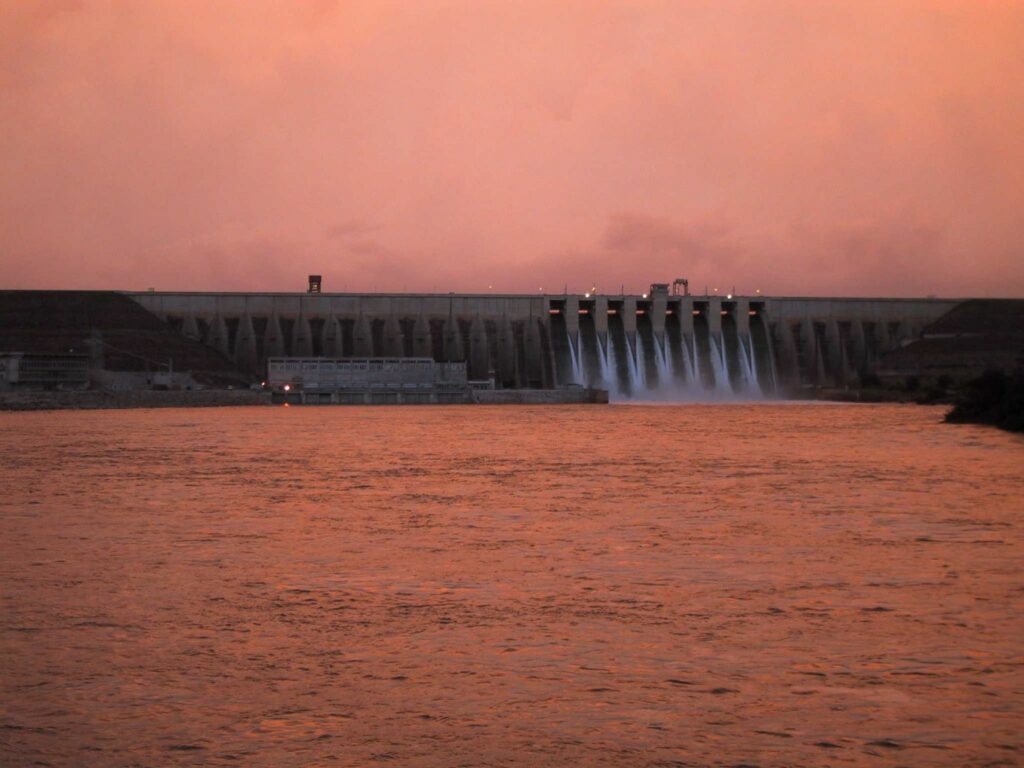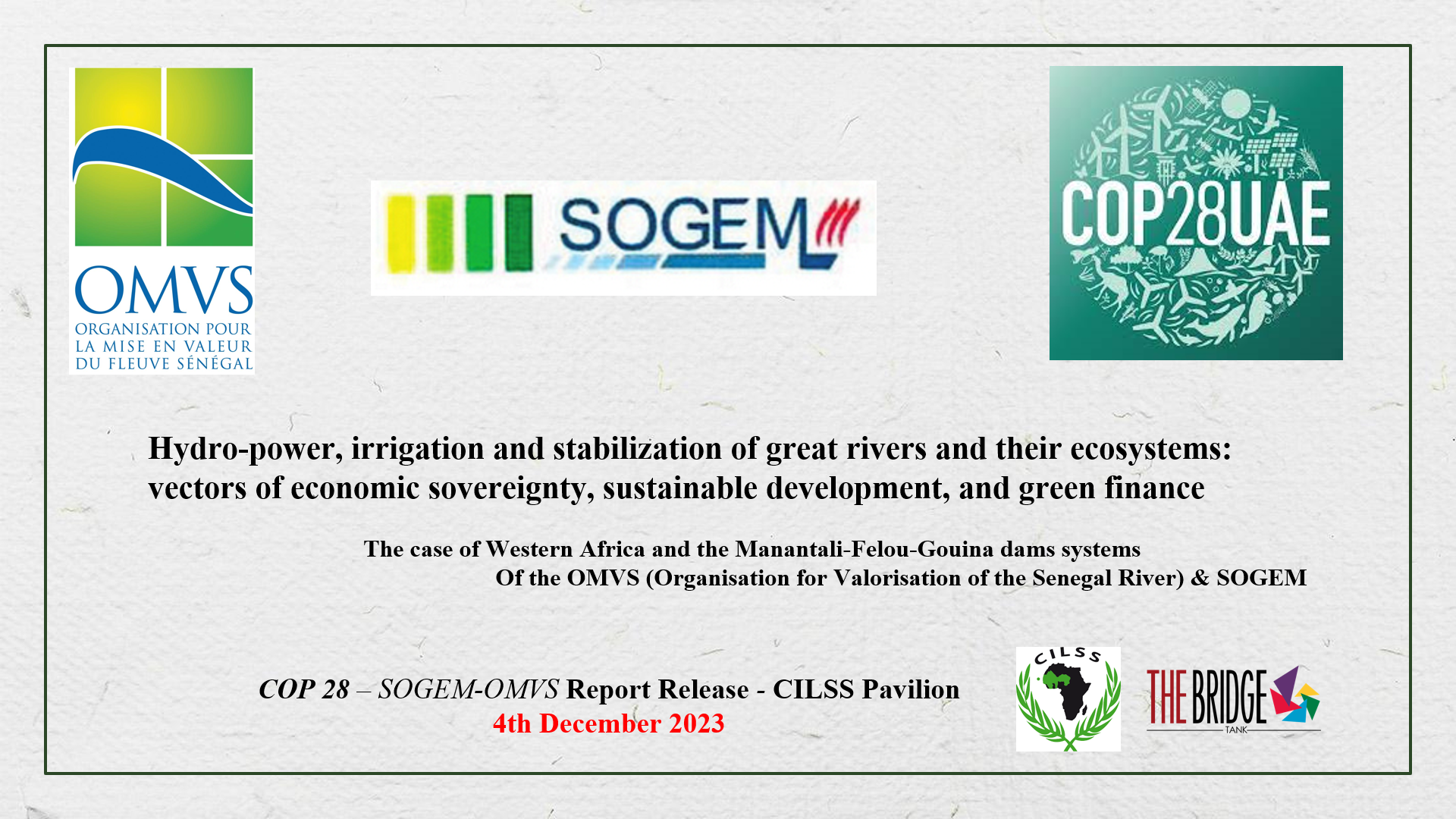COP28 in Dubai has ended. As we look back on an eventful two weeks, some positives stand out. The final agreement calls for a “transition away from fossil fuels”, progress has been made on loss & damages, and the issue of adaptation and its financing is gaining in visibility.
These three priorities illustrate the importance of developing integrated development projects that address both mitigation and adaptation issues. An example for that can be found in hydroelectric dams. As they contribute to much more than just electricity production, especially when integrated with irrigated agriculture and sustainable land management programs, they are among those tools that can integrate development policies and which ought to be promoted. COP28 provided an opportunity to present one of these success stories in climate action and sustainable development originating from West Africa.
As part of the official program of the Permanent Interstate Committee for Drought Control in the Sahel (Comité permanent Inter-Etats de Lutte contre la Sécheresse dans le Sahel, CILSS), The Bridge Tank, the Organisation for the Development of the Senegal River (Organisation pour la Mise en Valeur du fleuve Sénégal, OMVS) and the Société de Gestion de Manantali (SOGEM) co-organized a side event to share the results of an innovative study on the contributions of the Manantali-Felou-Gouina hydroelectric facilities to development in the Sahel and West Africa.
This event was part of an ongoing series of exchanges with the French Water Partnership (FWP) and the International Network of Basin Organizations (INBO).
The side event was organized on the occasion of the “Global Goal on Adaptation” day, on December 4, 2023.
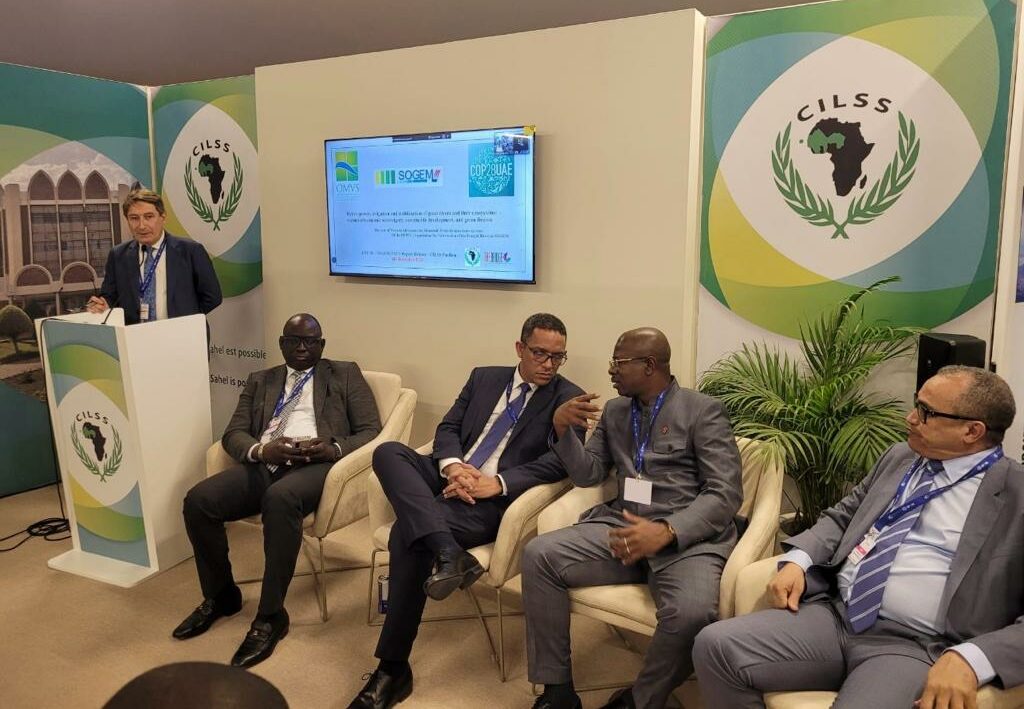
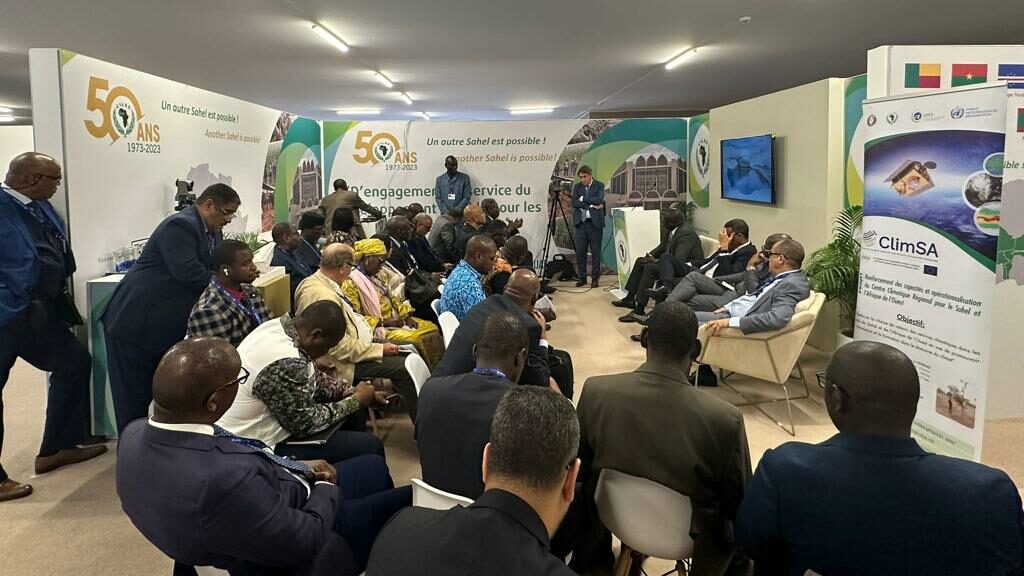
Understanding and leveraging contributions
Conducted by Joël Ruet, the study presented at this event offers an analysis of the various forms of economic contributions made by the OMVS and SOGEM hydropower facilities to the sustainable development of the Sahelian zone and West Africa.
It analyses the knock-on effect on the entire development chain. Energy, water, agriculture, socio-economics, restoration of degraded land and the fight against salinity. Not to mention the greenhouse gas emissions avoided and the historic contribution to the global carbon budget made by this clean energy source.
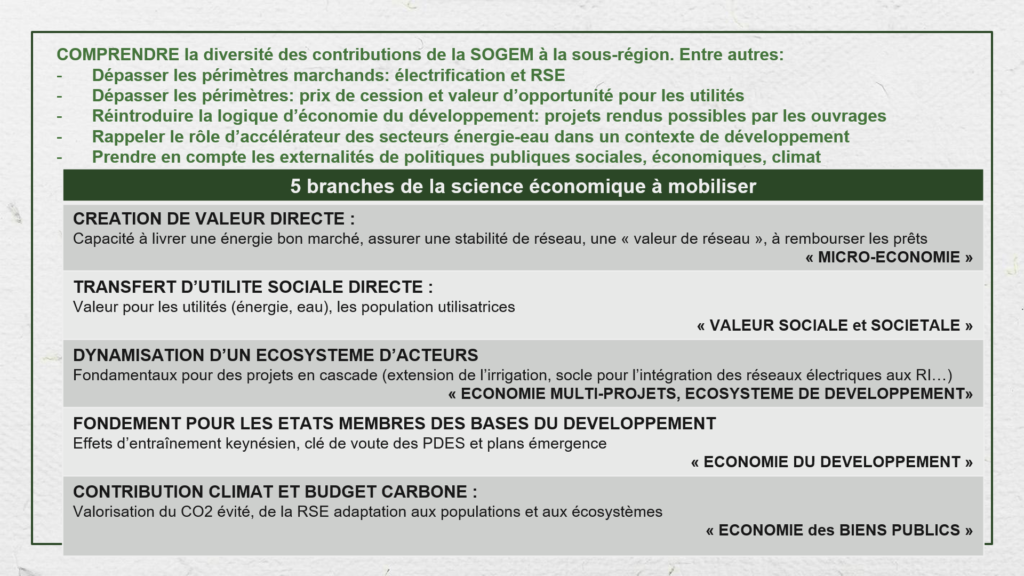
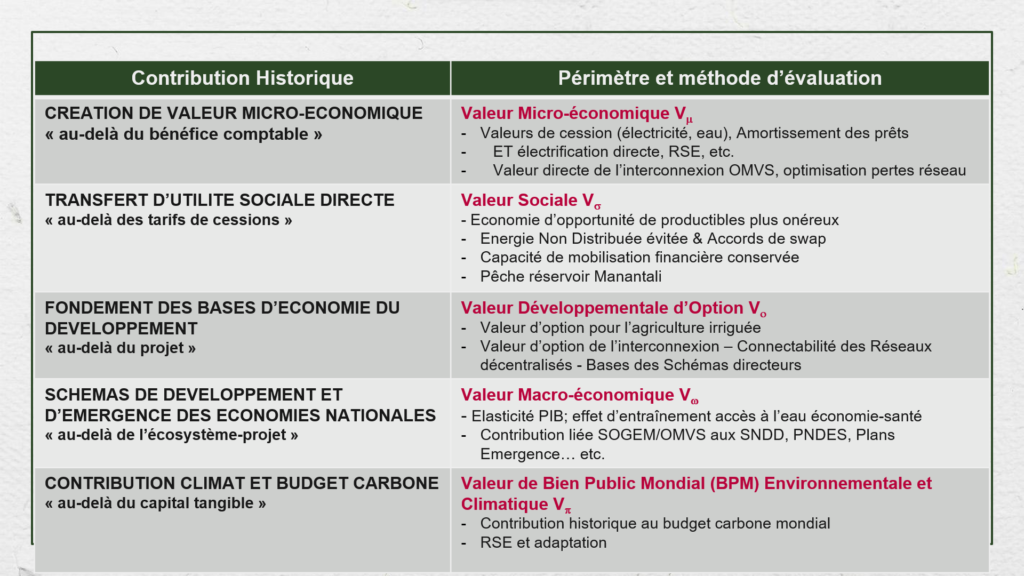
The study offers an innovative contribution to demonstrating the strong links between mitigation and adaptation. Its value also lies in its contributions to public policy. Indeed, this study is the first systemic study since the evaluation by funding agencies (KfW, EIB, AFD) in January 2009.
More than an essential update, the study draws on the wealth of research on sustainable development. It provides an innovative methodology for dealing with the economics of development in a post-Paris Climate Agreement context. Recommendations inform national and multi-lateral public authorities about the benefits of public policies: energy transition, emergence, climate stability, green finance, etc.
The study also provides a technical contribution listing the benefits defined and assessed by complementary methodologies. Accounting contributions, micro-economics, alternative counterfactual scenarios, macro-economics and elasticity, avoided GHG valuation, and finally the “real option value” of regional and national development strategies unlocked by the Manantali-OMVS sytem’s assets are some of the different technical contributions analyzed within the framework of the study.
Contributors and partners of the event
The panel of the event was composed of :
- Mr Aly Seydouba Soumah, Minister of Energy, Hydraulics and Hydrocarbons, Republic of Guinea,
- Mr Nabil Ben Khatra, Executive Secretary of the Sahara and Sahel Observatory,
- Mr Mohamed Abdel Vetah, OMVS High Commissioner,
- Mr Seydou Sané, Chairman of the Board of Directors, SOGEM/OMVS,
- Mr Mohamed Mahmoud Sid’Elemine, Managing Director of SOGEM/OMVS,
- M. Joël Ruet, CNRS economist at the Institut Interdisciplinaire sur l’Innovation, Senior Associate, Technology for Change Chair, Ecole Polytechnique, Chairman of The Bridge Tank.
Through this event, discussions were facilitated with Mr. Jean-Luc Redaud, Chairman of the FWP “Water & Climate” Working Group, Ms. Kathryn Bartlett, Soil Scientist for AngloAmerican, Mr. Amadou Maiga Mahamadou, Deputy Managing Director of the Agricultural Bank of Niger, Mr. Abdoul Razak Baraze Saida, Director of Credit d’étude et partenariat of the Agriculture Sector and Mr. Abdou Nouridine Sanfo from the Executive Secretariat of the Green Climate Fund for Burkina Faso.
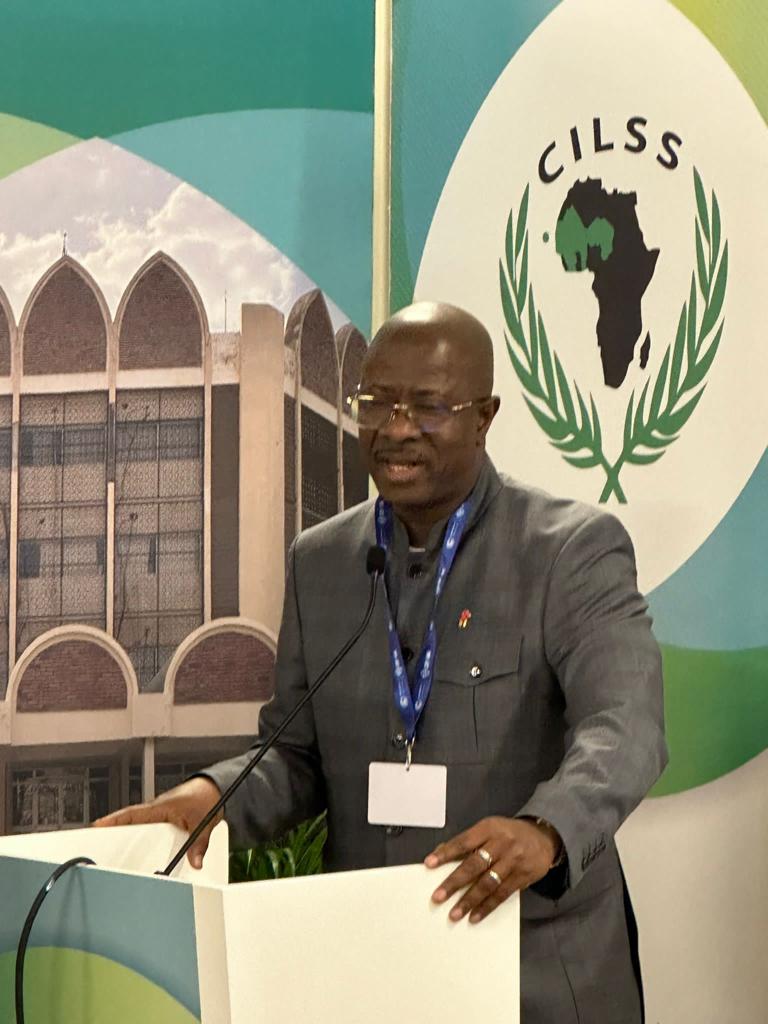
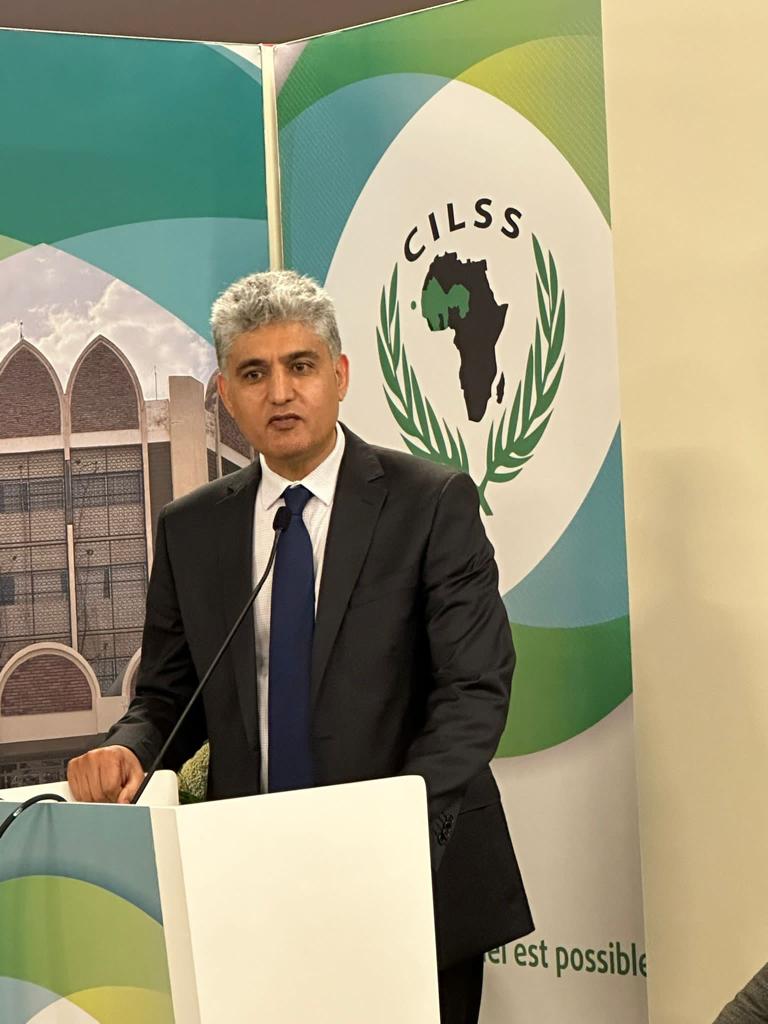
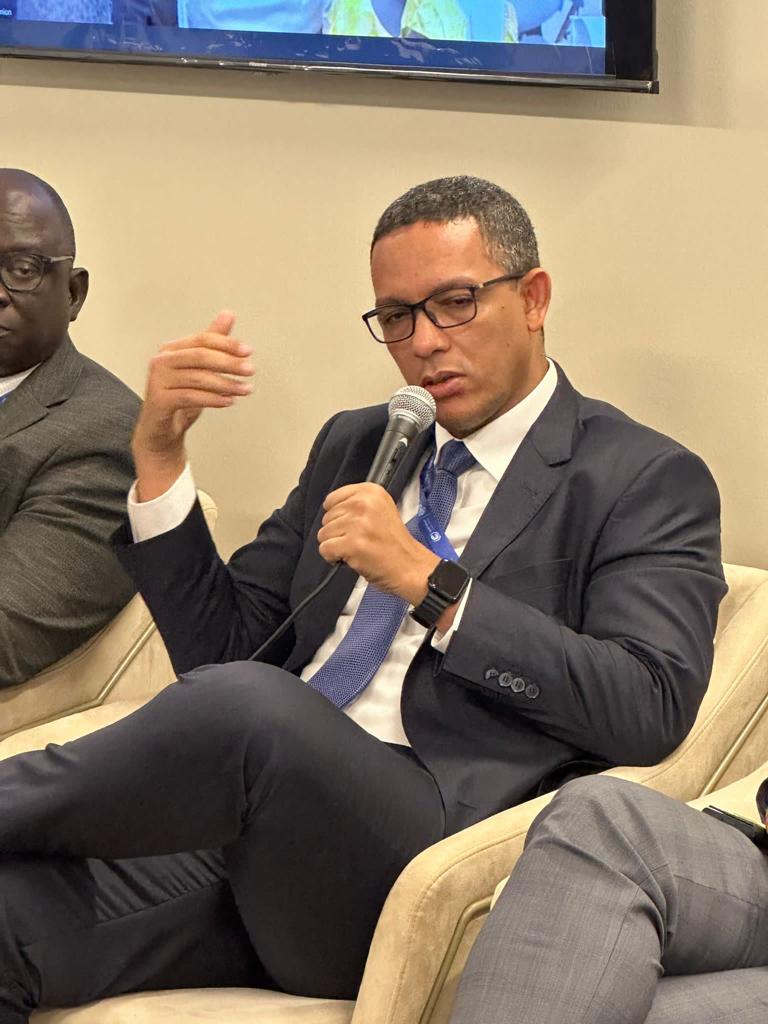
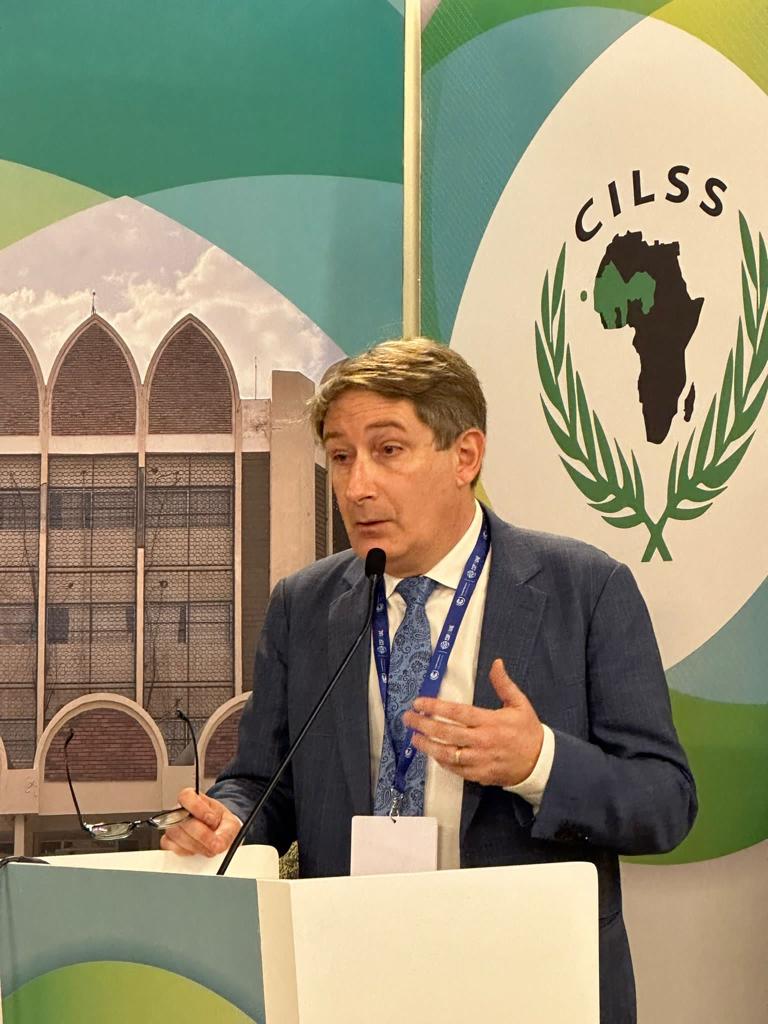
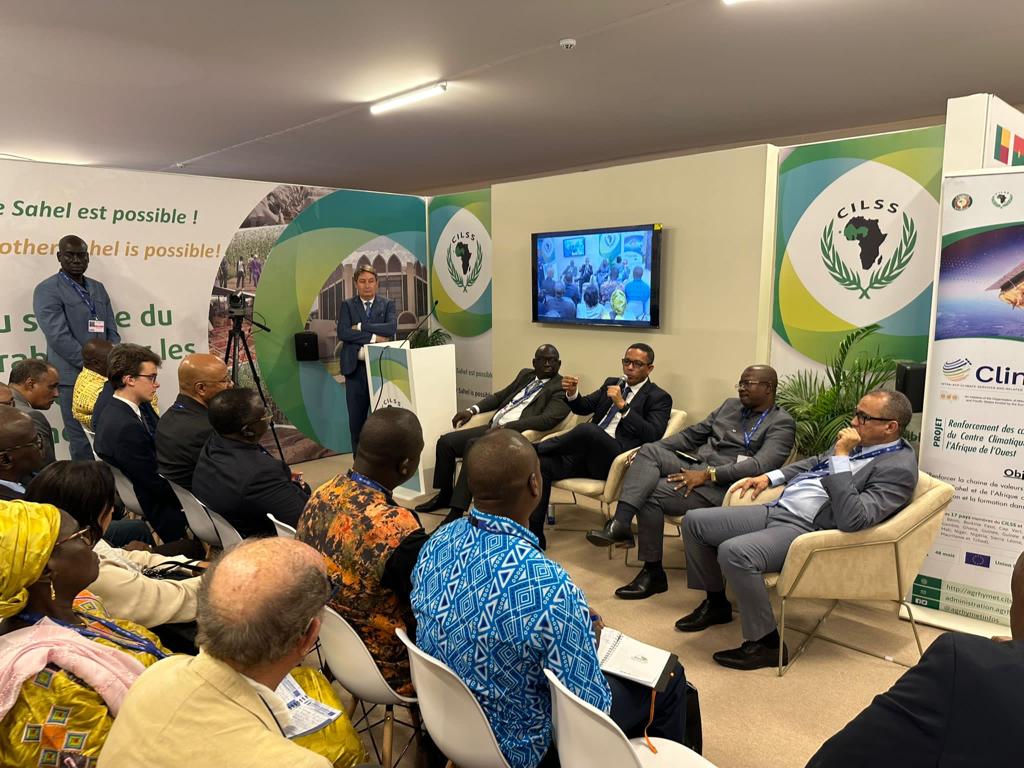
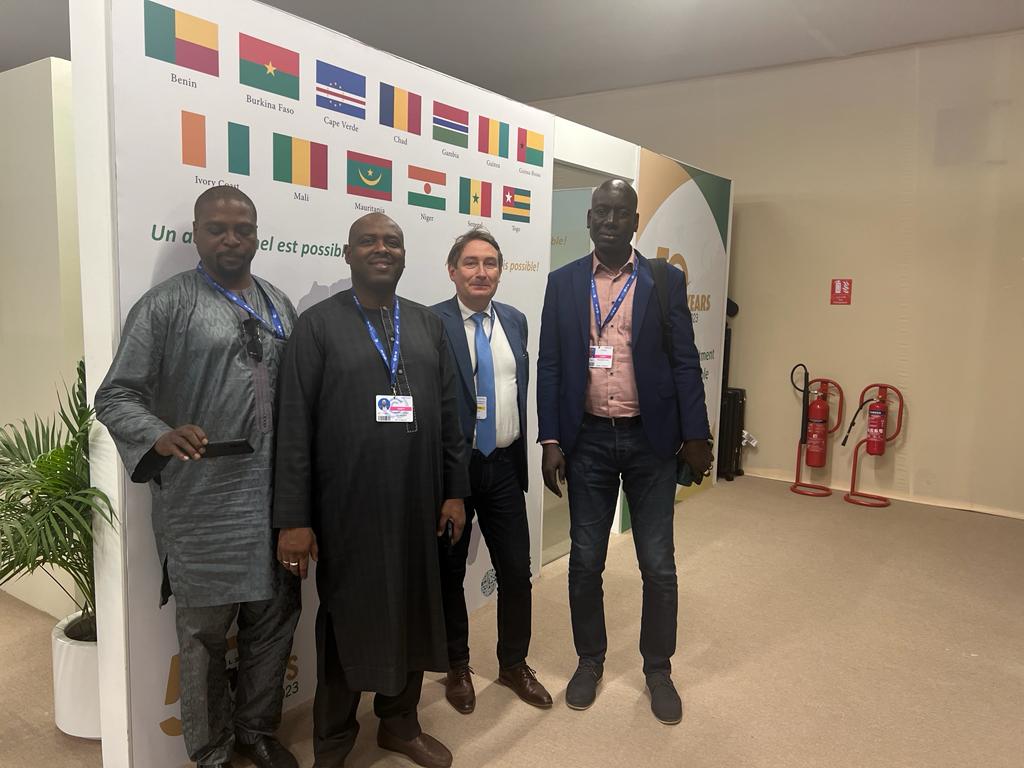
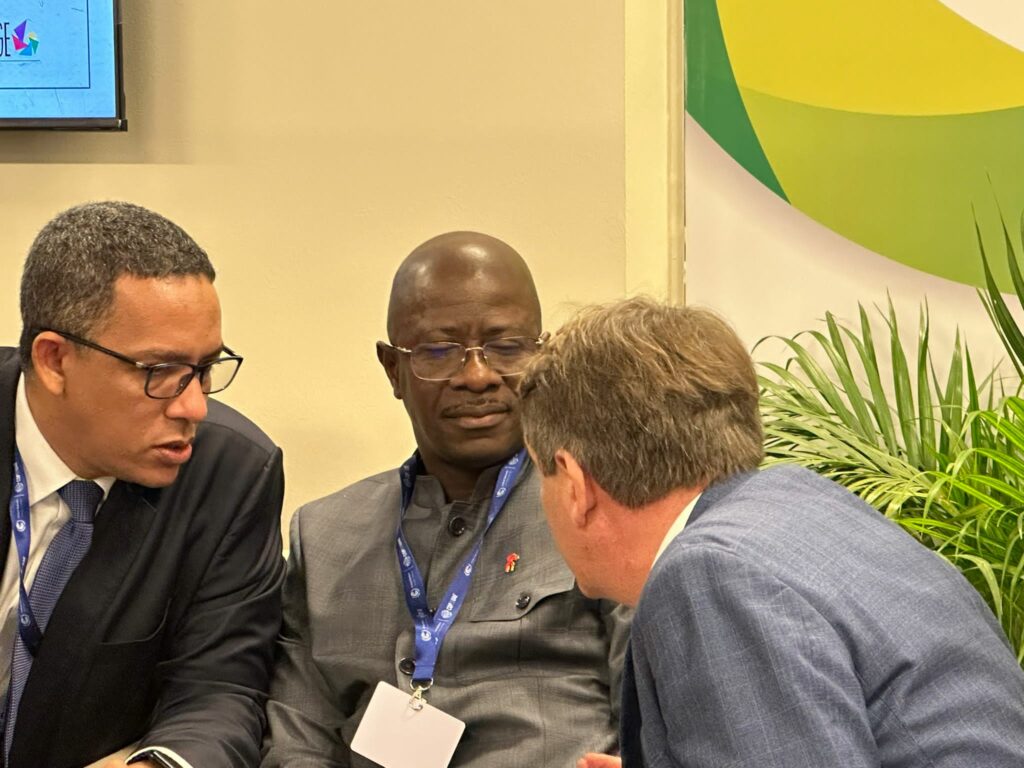
The Manantali Dam
